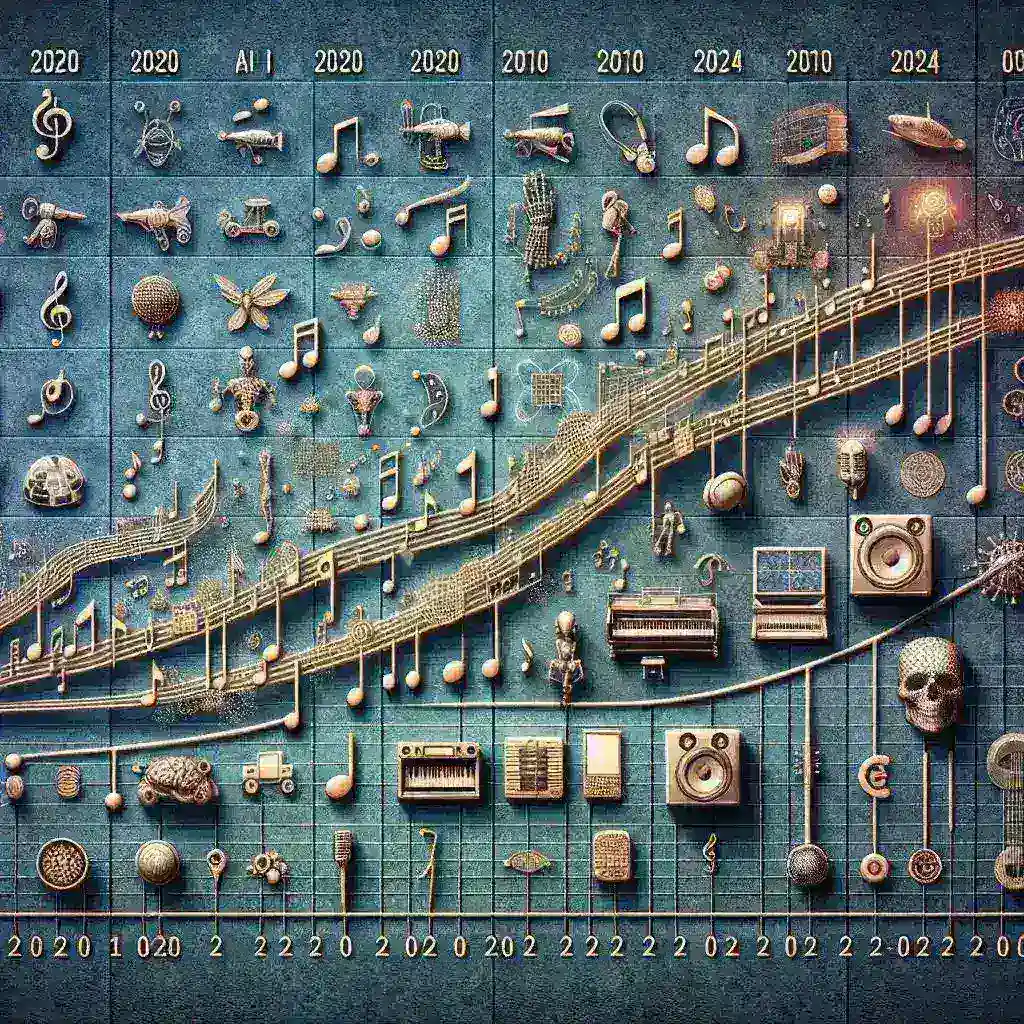The Revolutionary Leap in AI-Generated Music: A New Era of Sonic Innovation
The landscape of music creation is undergoing a seismic shift as artificial intelligence reaches unprecedented levels of sophistication in generating realistic musical compositions. This transformative technology is not just making waves; it’s creating a tsunami of innovation that’s reshaping our understanding of creativity and musical expression.
Understanding the Technical Evolution of AI Music Generation
The journey to creating realistic AI-generated music has been nothing short of remarkable. Modern AI music systems employ sophisticated neural networks and deep learning algorithms that have revolutionized how machines understand and create music.
Key Technologies Driving the Revolution
- Deep Learning Neural Networks: Advanced algorithms that can process and understand complex musical patterns
- Natural Language Processing: Enables AI to understand and interpret musical context and emotion
- Generative Adversarial Networks (GANs): Creates increasingly realistic musical compositions through competitive learning
- Transfer Learning: Allows AI systems to apply musical knowledge across different styles and genres
Breaking Down the Elements of Realism in AI Music
The current generation of AI music systems has achieved remarkable levels of realism by mastering several crucial elements that were previously thought to be exclusively human domains.
Emotional Intelligence in Musical Composition
Modern AI systems can now interpret and convey complex emotions through music, creating compositions that resonate with human listeners on a deep emotional level. This breakthrough has been achieved through sophisticated analysis of how different musical elements affect human emotional responses.
Dynamic Range and Expressiveness
The latest AI music generators excel at creating natural-sounding dynamics and expressive elements that were once the exclusive domain of human musicians. These systems can now produce subtle variations in tempo, volume, and articulation that make the music feel alive and organic.
Real-World Applications and Impact
The implications of highly realistic AI-generated music extend far beyond mere technological achievement, touching various sectors of the music industry and creative arts.
Commercial Applications
- Film and television scoring
- Video game soundtracks
- Advertising and commercial background music
- Streaming platform content
- Personalized music experiences
Educational Impact
AI-generated music is revolutionizing music education by providing students with interactive learning experiences and personalized composition tools. This technology is making music creation more accessible to beginners while offering advanced tools for experienced musicians.
The Creative Partnership: AI and Human Musicians
Rather than replacing human musicians, AI is emerging as a powerful collaborative tool that enhances human creativity and opens new possibilities for musical expression.
Collaborative Possibilities
- Co-writing sessions with AI assistance
- AI-powered arrangement and orchestration
- Real-time improvisation partners
- Advanced music production tools
Challenges and Ethical Considerations
As AI-generated music becomes increasingly realistic, several important challenges and ethical considerations have emerged that require careful attention from the industry.
Copyright and Ownership
The question of who owns AI-generated music and how to protect intellectual property rights in this new landscape remains complex. Industry stakeholders are working to develop new frameworks for addressing these challenges.
Artistic Authenticity
The discussion around artistic authenticity and the value of human creativity continues to evolve as AI-generated music becomes more sophisticated. This raises important questions about the nature of creativity and artistic expression.
Future Prospects and Innovations
The future of AI-generated music looks incredibly promising, with several exciting developments on the horizon that could further push the boundaries of what’s possible.
Emerging Trends
- Hybrid Creation Systems: Combining multiple AI approaches for more sophisticated output
- Real-time Adaptation: Music that changes dynamically based on listener feedback
- Cross-cultural Fusion: AI systems that can blend different musical traditions seamlessly
- Emotional Response Learning: Systems that adapt to listeners’ emotional states
Industry Impact and Market Transformation
The music industry is experiencing significant changes as AI-generated music becomes more prevalent and realistic. This transformation affects everything from production processes to distribution models.
Market Opportunities
- New business models for AI-music platforms
- Innovative licensing frameworks
- Personalized music services
- Enhanced production efficiency
Best Practices for Working with AI Music Generation
As AI music tools become more accessible, understanding how to effectively utilize them becomes increasingly important for musicians and producers.
Guidelines for Optimal Results
- Understanding AI capabilities and limitations
- Maintaining creative control and direction
- Balancing AI assistance with human input
- Ensuring quality control and consistency
Case Studies: Success Stories in AI Music
Several groundbreaking projects have demonstrated the potential of AI-generated music, setting new standards for what’s possible in this field.
Notable Achievements
From complete symphonies to hit pop songs, AI has demonstrated its ability to create music that can stand alongside human-composed works. These successes have helped validate the technology and open new possibilities for creative expression.
Conclusion: The Harmonious Future of AI and Music
As AI-generated music continues to reach new levels of realism, we stand at the threshold of a new era in musical creativity. The technology’s rapid advancement suggests that we’ve only begun to scratch the surface of what’s possible when human creativity meets artificial intelligence.
The future of music creation looks increasingly collaborative, with AI serving as a powerful tool that enhances rather than replaces human creativity. As these technologies continue to evolve, they promise to democratize music creation while pushing the boundaries of what we consider possible in musical expression.
Looking Ahead
The journey of AI-generated music is far from over. As technology continues to advance, we can expect even more impressive developments that will further blur the line between human and machine-created music. The key will be finding the right balance between technological innovation and preserving the human element that makes music such a powerful form of expression.

Leave a Reply